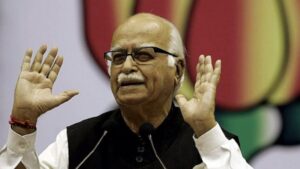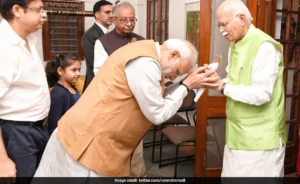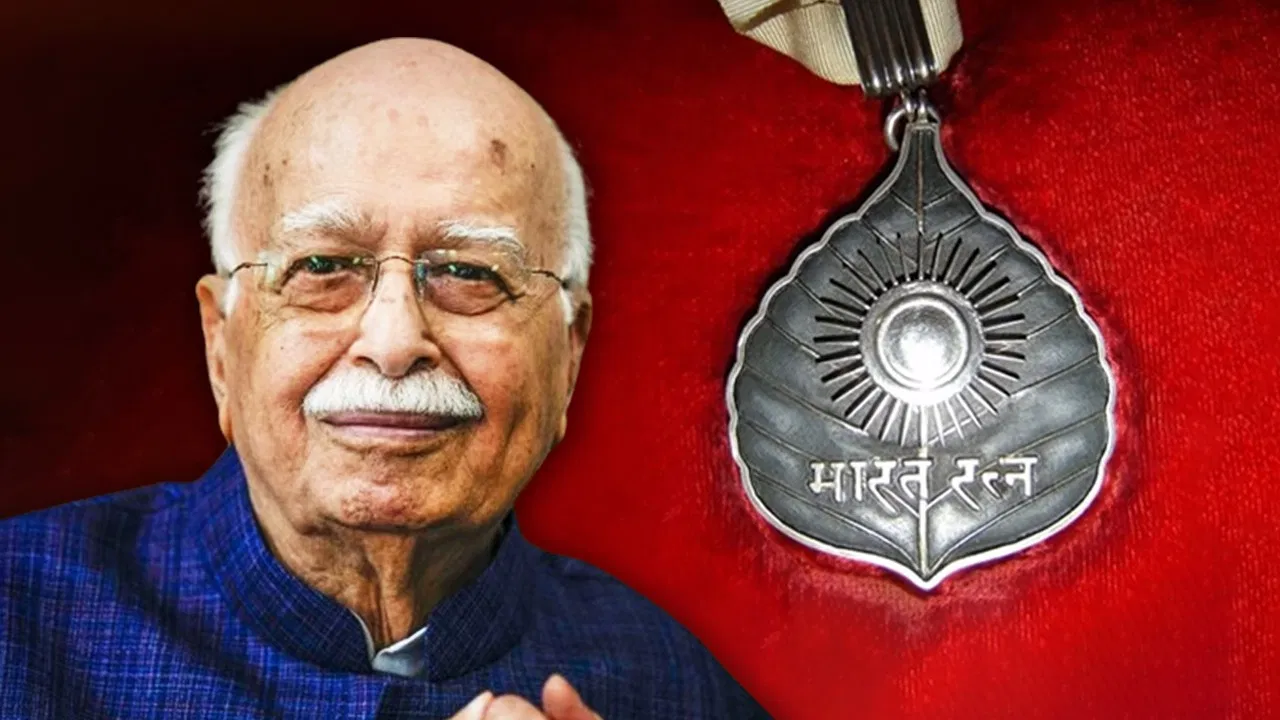Lal Krishna Advani: A Statesman of Indian Politics
In the labyrinthine world of Indian politics, certain figures stand out not just for their longevity but for their profound impact on the nation’s trajectory. One such luminary is Lal Krishna Advani, a stalwart whose journey in the political landscape of India spans decades, marked by both triumphs and challenges. In this article, we delve into the life and legacy of this eminent statesman.
Exploring the Impact and Legacy of Carl Weathers in Hollywood HAPPY SECRET 2024
Born on November 8, 1927, in Karachi, Lal Krishna Advani’s early life was marked by the tumult of partition, which shaped his worldview and political consciousness. His upbringing in a middle-class Hindu family instilled in him values of resilience, determination, and service to the nation. Little did the young Advani know that his destiny would intertwine with the fate of a nation in transition.

Advani’s foray into politics began in the 1940s, during the tumultuous aftermath of India’s independence. Inspired by the ideals of the Rashtriya Swayamsevak Sangh (RSS), a Hindu nationalist organization, he embarked on a journey of activism and social reform. His early years were characterized by grassroots work, organizational leadership, and a commitment to the nationalist cause.
The 1970s marked a turning point in Advani’s political career with his association with the Bharatiya Janata Party (BJP), a party that would become the vanguard of Hindu nationalism in India. Advani’s rise within the BJP ranks was meteoric, owing to his astute political acumen, oratory prowess, and unwavering commitment to the party’s ideology.
One of the defining chapters of Lal Krishna Advani’s political career came in the 1990s with the Ram Janmabhoomi movement, which sought to reclaim the site in Ayodhya believed to be the birthplace of Lord Ram and build a temple there. Advani’s Rath Yatra, a mass mobilization campaign across India, galvanized support for the cause and catapulted him to the forefront of national politics. The movement, however, was not without controversy and unleashed communal tensions that reverberated across the country.
Advani’s tenure as Deputy Prime Minister of India from 2002 to 2004 under Atal Bihari Vajpayee’s leadership showcased his administrative skills and statesmanship. He played a pivotal role in shaping India’s foreign policy, strengthening ties with key nations, and promoting economic reforms. His tenure was characterized by a pragmatic approach to governance and a commitment to national development.
Despite his contributions to Indian politics, Lal Krishna Advani’s career has not been devoid of controversies and challenges. His role in the Babri Masjid demolition and subsequent legal battles have cast a shadow over his legacy, raising questions about his commitment to secularism and communal harmony.

As Lal Krishna Advani enters the twilight of his political career, his legacy remains a subject of debate and reflection. He is revered by some as a visionary leader who championed the cause of Hindu nationalism and played a pivotal role in shaping India’s political landscape. Others criticize him for his role in divisive politics and communal polarization.
In conclusion, Lal Krishna Advani’s journey epitomizes the complexities and contradictions of Indian politics. His life story is a testament to the power of conviction, the allure of power, and the enduring quest for a more perfect union. As India marches forward into the 21st century, the legacy of leaders like Advani serves as a reminder of the enduring spirit of democracy and the ever-evolving tapestry of Indian identity.


















+ There are no comments
Add yours